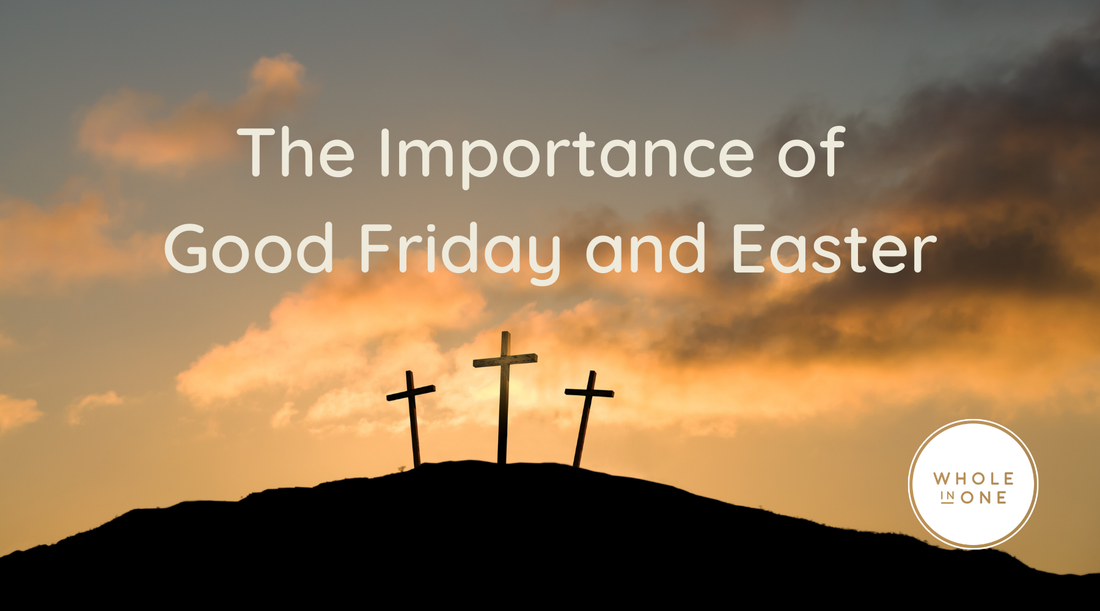In the heart of Christian traditions lie Good Friday and Easter, two occasions that offer much more than a moment in religious history. They bring to light the profound acts of love and sacrifice made by Jesus Christ and the hope and renewal that followed. These days aren't just about looking back; they're about finding inspiration to renew our spirits and deepen our commitments in the here and now.
Why is Good Friday Good?
Good Friday holds a pivotal place in the Christian calendar, rooted deeply in the events of over two thousand years ago.
On this day, we commemorate the crucifixion of Jesus Christ, an event that stands at the heart of Christian faith. It's a day that goes beyond mere remembrance, embodying the ultimate expression of sacrificial love. Jesus's willingness to endure the cross was not just an act of profound love but a pivotal moment that offered humanity a bridge to forgiveness and reconciliation with God.
This day, therefore, is not solely about the sorrow of loss but also about the hope that stems from the possibility of new beginnings. It reminds us of the delicate interplay between divine justice and mercy, showcasing how transformative acts of selfless love can be. Through the lens of Good Friday, we see the pathway to reconciliation, a journey that invites reflection on the profound impacts of compassion and forgiveness in our lives.
The Significance of Easter
Easter's journey from its inception to the present day reveals a celebration deeply rooted in history, evolving through time to encompass a blend of religious significance and cultural traditions. Here's a closer look at how Easter has transformed:
Origins of Easter
Easter's story begins with the early Christian church, commemorating the resurrection of Jesus Christ on the Sunday after the first full moon following the vernal equinox. This timing was standardized in 325 AD during the First Council of Nicaea, aiming to create a unified global observance. This period marks not just a religious moment but the intertwining of faith with the natural cycle of seasons.
Cultural Integration and Evolution
As Christianity spread, Easter embraced and integrated various cultural customs, enriching its celebration. The Middle Ages saw Easter incorporating springtime symbols like eggs and rabbits, rooted in earlier pagan traditions celebrating fertility and renewal. These symbols, while not originally Christian, came to represent Easter's themes of life and new beginnings.
Modern Celebrations
Today, Easter remains a cornerstone of Christian faith, symbolizing hope and redemption. It's also a time for community, where traditions such as egg hunts and family meals highlight the holiday's broader cultural significance. Modern Easter blends deep religious observance with celebrations of life and family, illustrating the holiday's adaptability and enduring appeal.
Easter, with its rich tapestry of history and tradition, invites reflection on rebirth, renewal, and the transformative power of faith, bridging past and present in its observance.
An Invitation to Life
The events of Good Friday and Easter extend beyond historical commemorations, inviting us into a journey of profound transformation. Through the narrative of Jesus Christ's crucifixion and resurrection, we are called to deep reflection and active participation in the promises these days hold.
Eternal Promise
Eternal Life: The promise of eternal life, made accessible through faith in Jesus Christ, encourages us to look beyond our earthly existence. It invites us to consider our spiritual path and the deeper significance of our beliefs, offering a perspective that transcends the temporal.
For God so loved the world that he gave his one and only Son, that whoever believes in him shall not perish but have eternal life.
John 3:16 (NIV)
Living Fully Today
Abundant Life: Beyond eternity, Good Friday and Easter beckon us to embrace a life of richness and depth here and now. Inspired by Jesus's teachings, we are encouraged to live each day with purpose, joy, and peace, reflecting divine love in our actions and interactions.
The thief comes only to steal and kill and destroy; I have come that they may have life, and have it to the full.
John 10:10 (NIV)
Divine Empowerment
Empowered Life: The Holy Spirit's empowerment, a gift to believers, provides the strength and courage to face life's challenges. This divine presence is a reminder of God's ongoing support, guiding us to make meaningful contributions to our communities and to live in a way that honors the essence of these holy days.
But you will receive power when the Holy Spirit comes on you; and you will be my witnesses in Jerusalem, and in all Judea and Samaria, and to the ends of the earth.
Acts 1:8 (NIV)
By embodying the love and renewal that Good Friday and Easter symbolize, we not only honor these sacred days but also contribute to a world in need of hope and connection. Let's carry forward the message of these celebrations into every aspect of our lives, fostering a community spirit that resonates with the promise of new beginnings.
Essential Reflections
Good Friday and Easter are not just dates on the calendar but pivotal moments that invite deep contemplation and renewal of faith. They remind us of the profound love that led Jesus to the cross and the power that raised him from the dead, offering hope and a new beginning to all who believe.
Embodying Easter's Promise in Every Action
The journey from Good Friday to Easter isn't just a historical or spiritual observation; it's a call to live out the profound love and renewal we commemorate. This season, let’s actively embody the essence of these days. Seek out opportunities to share the transformative love of Jesus Christ within your community.
Strengthen bonds with those around you, forging new beginnings grounded in compassion and shared understanding. By translating the spirit of Good Friday and Easter into our daily actions, we can inspire a wave of positive change, echoing the message of hope and renewal far beyond these sacred moments.
Have a Blessed Easter!

